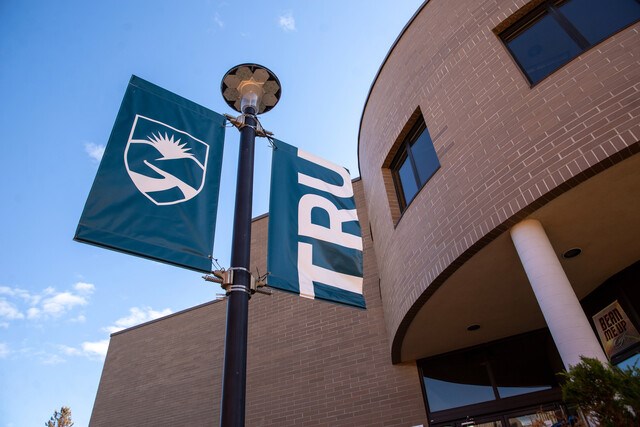While international student applications are down by 50 to 70 per cent, Thompson Rivers University’s vice-president international says the university is still in a "solid" position for the fall semester.
Following an announcement in January that the number of international student permits would be cut by 35 percent across Canada and capped for two years, the B.C. government implemented an attestation letter system in early March.
Each post-secondary institution is given an allotment of letters. International students must receive a letter from the institution they will be attending before applying for a study permit — although a letter doesn’t guarantee a permit.
Baihua Chadwick, TRU’s VP international, told Castanet the university was allocated 2,400 letters. While this is significantly fewer than the 4,600 international students currently on campus, letters are only needed for new students seeking study permits.
While she said the university has more letters than it will need, it’s still unknown how many international students will be on campus for the upcoming fall semester.
“There's still a lot of time for them to register. So for now, I don't know how many will return, but as we move along with registration, we will,” Chadwick said.
Uncertainty among new students
She said international applications are down by 50 to 70 per cent across the board.
Applications from India are “on the higher end of the decline,” according to Chadwick, despite making up the largest cohort of international students — around 44 per cent of the total international student population on campus last fall.
“Yes, there's a huge decline but TRU is in a solid position financially and academically and also from a capacity perspective,” Chadwick said.
Chadwick told the university's board in March that while TRU World has been working to diversify its international student body, the university is temporarily pausing its diversification efforts to ensure it reaches its targeted international enrolment goal of 4,000 students next semester.
She said a decline in applications is being seen across Canada due to an unintended consequence of the permit cap.
“Many of them are receiving the message or interpreting the message as Canada is closing its door for international students, even though that's not the case,” she said.
“All of these changes are sending a message to the global market that there is uncertainty, there's lack of clarity, and also let's not forget Canada is not the only destination for these international students.”
She said when the announcement was first made in January, more than 1,000 would-be international students in the middle of TRU’s application process stopped.
As a result, Chadwick said TRU World began a calling campaign to contact each of the students to assure them Canada’s doors are still open.
Budgeting for a solid financial position
The university is currently budgeting for an $18 million surplus this year, due to an influx of international students and around 80 vacancies.
While TRU currently has 4,600 international students on campus, the university says it had been working to bring this down to 4,000 prior to the announcement and may now reach that target sooner than expected.
In its 2023-24 approved budget, TRU budgeted just under $60 million to come from undergraduate, on-campus international tuition. In TRU's third quarter forecast, this was predicted to reach just over $70 million by year-end, largely due to the influx.
Despite the recent changes, the university has budgeted for a similar amount — just over $69 million — for the 2024-25 academic year.
What will happen to housing?
TRU opened the doors to its newest residence, the Coyote Den, last year. The building was the first phase of a three-phase development plan to build three new residence buildings.
Chadwick said whether the university moves forward with the next phases of the development will depend on international and domestic student desire and enrolment.
“We know the majority of the international students actually choose to stay off-campus, not on-campus residence. So again, it depends on the students' desire,” Chadwick said.
“Whether we move forward to phase two or phase three will depend on the trends and on the data we collect from the students.”
Matt Milovick, TRU's vice-president of administration and finance, said at the March board meeting that at 4,600 international students the university was at a "saturation point."
"We recognize that we were at our threshold. We were in a place that was starting to — I'd say a bit of a saturation point. We were comfortable, everybody had housing, but perhaps a little bit too large," he said.
In a statement, TRU said it believes the provincial allocation of 83,000 student permits will allow it sufficient capacity to "envision international student recruitment" to meet its budgetary and enrolment targets for 2024-25.
TRU volunteered its IT services to work with the ministry in implementing the attestation letter system and served as a guinea pig for the new system before it was rolled out.
According to Chadwick, attestation letter allotments to institutions will be rebalanced in June.




